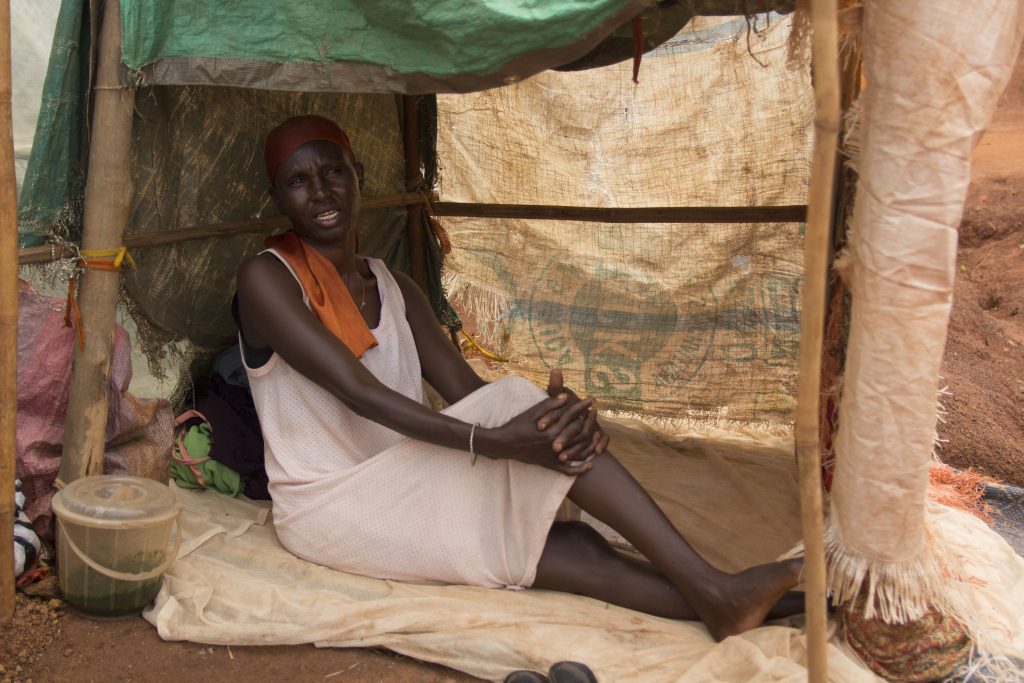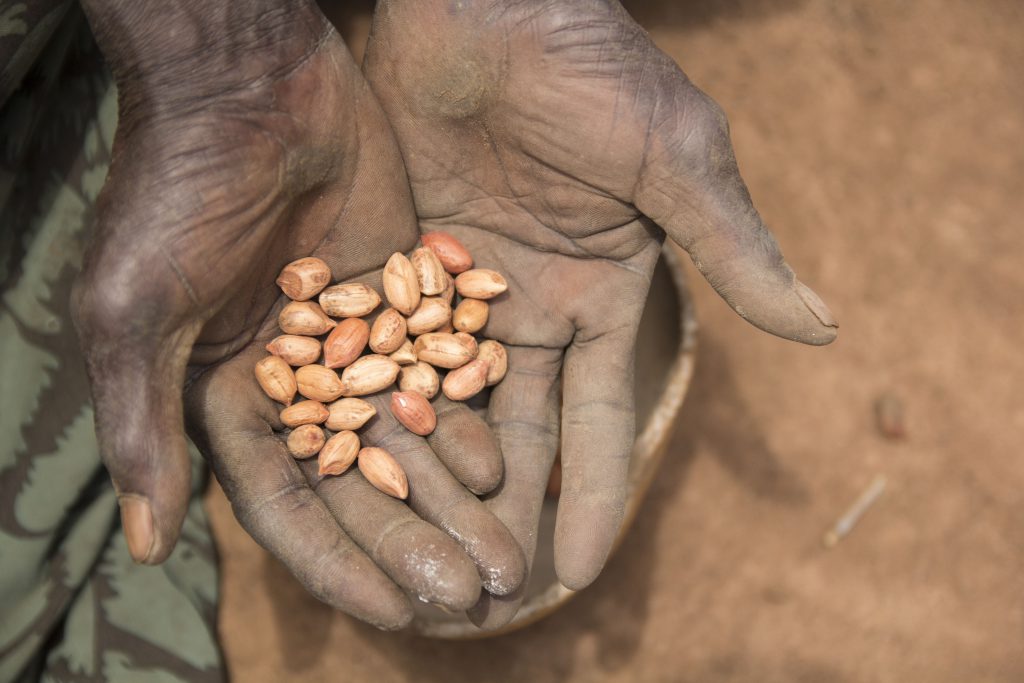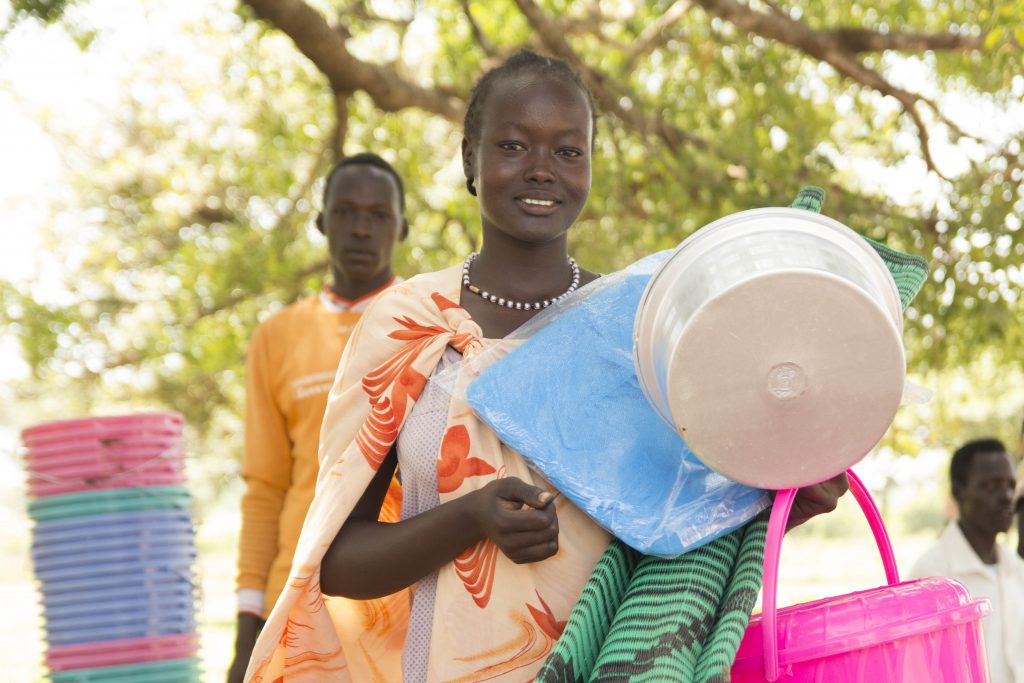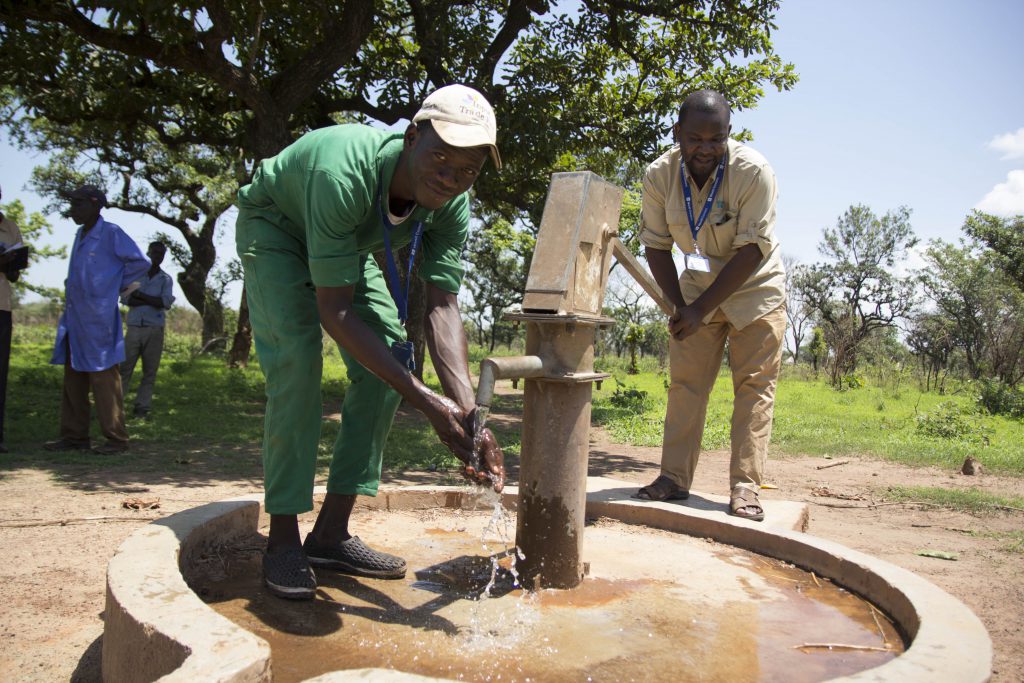Humanitarian Aid
Emergency Survival Supplies Can Save Lives in South Sudan

As I see report after report of the destruction caused by hurricanes, earthquakes, and flooding, my thoughts turn to the crisis in South Sudan.
The images are chillingly similar. A woman stands amid the wreckage of her home in Houston, knee deep in water. A child in South Sudan stands beside a tarp upheld by a few sticks, wading in muddy water.
When disaster strikes at home, we can count on aid workers and our local government to provide shelter, food, and clean water. But in places like South Sudan, none of these provisions are available.
Food, clean water, even the ability to close the front door to my home are all things I take for granted. Can you imagine living with no walls, no door—not even a bathroom to use in private?
After her home was burned to the ground during an outbreak of violence in her village, Gisma gathered her children and followed the path millions of South Sudanese walked (or ran) before her: to a camp for displaced families.
Gisma now sleeps on a rough sack underneath a ragged piece of canvas barely big enough for her to stretch out her legs. Her children can no longer stay with her for fear they will be swept away by the torrential rain that pours outside her tent.

Gisma sits under a makeshift shelter in a camp for displaced families.
“My legs are in pain, but I have no other option, I have to stay here . . . if the rain comes, I just have to endure,” grieves Gisma.
With no hope of regaining her home, finding food, or ensuring her own safety, Gisma’s circumstances can turn deadly at any moment.
It’s situations like Gisma’s where emergency survival supplies can make the difference between life and death.
What’s Included In World Concern’s Emergency Survival Supplies?
“What can I eat? What can I cover myself with?” Gisma asks herself each morning.
For people without the necessities for survival, World Concern steps in to provide kits stocked with food and other much-needed supplies. Each item received serves a specific purpose to meet the needs of moms and kids who have nothing.
Seeds to Harvest

A man in South Sudan receives seeds to plant.
South Sudan has little to no supportive economy. That being said, agriculture and farming are nonexistent, one of the many results of the crisis. Even if mothers like Gisma had the resources to buy food, sky-high prices and food shortages would make it impossible.
Seeds to plant for the next harvest provide solutions not only for the present, but long-term development as well.
Shelter

A mom in South Sudan receives emergency shelter supplies.
Many in the camps, like Gisma, live under makeshift shelters. A crucial element of the emergency supply kit, shelter materials such as tarps, rope, and tents provide additional protection from the rains and privacy.
Blanket and Sleeping Mat
Believe it or not, it gets cold at night in South Sudan. Blankets and a sleeping mat not only provide a clean place for families to lay their heads, but warmth and comfort when the temperature drops.
Clean Water and Water Cans

Clean water for families in South Sudan.
Even during the rainy season, clean, safe drinking water is scarce. Children drink from dirty ponds, not knowing that doing so will lead to parasitic worms or other deadly water-borne diseases. Access to safe drinking water, collected with the help of water cans, helps prevent disease and dehydration.
Mosquito Nets
Without a home, families sleep exposed to mosquitoes. The rainy season spreads disease as standing water accumulates, serving as a breeding ground for malaria-carrying mosquitoes. Mosquito nets protect children and their families from bites that can lead to malaria.
“I hope I can take [my children] into a world of hope, a good future, and development,” Gisma prays.
That’s my hope for Gisma and the many others displaced in South Sudan, too.
But until then, emergency supplies help bridge the gap while they wait for peace to come.
Learn more about the need for supplies like seeds to harvest and how you can give
